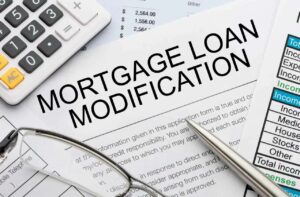We Put Families First before Profits
Guiding Families Out of Foreclosure

What We Do
We provide free services to homeowners who are facing foreclosure. Our team has over 35 years of experience assisting and empowering homeowners to find solutions to their devastating financial problems that can give them back peace of mind about their financial future.
There are Options
Our experience has taught us that many homeowners facing foreclosure may not be aware of many options that may be available to them. One option that makes sense for one family may not work for another. It is important to work with an experienced professional who understands your individual circumstance and truly cares about helping you achieve your desired outcome.

“What do I do?” “Where do I begin?”
There are many options for homeowners who find themselves in the middle of a foreclosure lawsuit; not all are created equal, and what makes sense for one family, may not make sense for another. So, how do you know what to do next? Before doing anything, it’s important to partner with professionals who care about you and your situation and will take the time to learn about your individual circumstances to help you achieve your desired outcome.

“Who Can Help Me?”
You don’t have to be an expert on all things pertaining to the foreclosure process, as long as you’ve surrounded yourself with people you can trust. We have the knowledge, experience, and access to the resources necessary for you to avoid your foreclosure.
What is Foreclosure?
What Happens When You Stop Paying Your Mortgage?
A GENERAL STEP-BY-STEP PROCESS
When you took out a loan to buy your home, you signed an agreement with the bank to make payments to the bank for a period of time. If you stop making those payments, the bank has the right to take back the property. After missing 3 payments, the bank begins the foreclosure process.
Step 1 – The homeowner receives the Lis Pendens, which is an official notice of a foreclosure lawsuit. The lawsuit is for missed payments, penalty charges for missing payments, interest, attorney and lender fees.
Step 2 – The court will send you a Summons, which outlines the formal complaint the bank has filed against you. At this point, you have 20-days to respond, in writing, with how you intend to resolve the matter.
Step 3 – The court asks the bank to provide an itemized list of all foreclosure expenses. Upon submitting the requested information, the bank asks the court to provide a final order of foreclosure, and to include all of the submitted expenses.
Step 4 – The Judge grants the final order of foreclosure (final judgment). You will receive a document from the court informing you when your property will be sold at auction.

What is a Loan Modification?
A loan modification permanently restructures the mortgage where one or more of the terms of the homeowner’s loan may pr
ovide for a more affordable payment plan, but this may not be an option for all homeowners.
THE LOAN MODIFICATION PROCESS
Step 1 – Speak with your lender and ask to apply for a loan modification.
Step 2 – As part of the application process, you will be asked to provide the following:
- A Request for Mortgage Assistance Form
- A completed and signed IRS Form 4506-T or 4506-T EZ
- Your most recent signed and filed Federal Tax Returns.
- Most recent pay stubs.
- Bank Statements
Step 3 – Lender reviews the package and determines approval. If approved, you will be given a 3-month trial period, where your payments must be made on time. Failure to do so will result in your failing to qualify for the loan modification.
THE SAD REALITY
Unfortunately, many banks make it very difficult for homeowners to get a loan modification. Less than 20% of homeowners get approved for loan modifications. Ask us for a free report.
Selling your home
Homes with Equity
THE SIMPLE PROCESS, BUT FIRST, THE PROBLEM
When you’re facing a foreclosure and you have equity in your property, the bank is working to take all of your equity through late fees, penalties, interest, administration fees, and attorney’s fees. The combined cost of these fees breaks down to an estimated $100 per day. That’s $3,000 every month you let go by.
THE SIMPLE SOLUTION
Not only will we help you avoid foreclosure, but we will also pay off your mortgage and all of the extra fees your bank is adding, so that you get as much of your equity as possible and walk away with CASH!!!!
Homes without Equity
If your home does not have equity, there are many benefits to a Short Sale that still make this a better option for homeowners over and above loan modifications and filing bankruptcy. To start, a Short Sale is the best way to protect yourself from having a foreclosure on your record and ruining your credit score for ten years. In a Short Sale, we will get you a Waiver of Deficiency, which means that you will NEVER have to pay on your mortgage ever again! Here are some of the benefits for you to consider
- A Short Sale lowers your credit by ONLY 50-70 points.
- Full Waiver of Deficiency.
- Affects your credit for only 12-18 months..
- Will not affect future employment opportunities.
- You have more time in your home while the bank considers and works out the details of your Short Sale.
What is Chapter 7 Bankruptcy?
Sometimes referred to as a straight bankruptcy, a Chapter 7 Bankruptcy is a liquidation proceeding. The debtor turns over all non-exempt property to the bankruptcy trustee who then converts it to cash for distribution to the creditors. The debtors receive a discharge of all applicable debts, usually within 4 months. In most cases, the debtor has NO ASSETS that he would lose so Chanter 7 will give that person a relatively quick “fresh start.” The bank will still move forward with the foreclosure anyway.
What is Chapter 13 Bankruptcy?
Also known as a reorganization bankruptcy, a Chapter 13 Bankruptcy is filed by people who want to pay off a portion of their debts over a period of 3-5 years. This type of bankruptcy appeals to individuals who have non-exempt property that they want to keep. It is also an option for individuals who have predictable income and whose income is sufficient to pay their reasonable expenses with some amount left over to pay off their debts.
What does it cost?
A bankruptcy attorney’s fee will vary, but usually falls within the range of $3,000 – $5,000. Some attorneys will provide a free initial consultation, so check with your attorney.
What are the consequences?
Filing bankruptcy stays on your credit report for up to 10 years. It also becomes difficult to get loans or qualify for low-interest credit cards right after filing for bankruptcy.
We’ve been there…
Let Us Help YOU.
Remember, each option comes with its own considerations and potential implications, so it’s crucial to weigh your choices carefully and seek professional guidance if needed. As real estate investors, we’re here to provide assistance and explore solutions tailored to your specific circumstances. Don’t hesitate to reach out to us for support during this challenging time.
Help Us Help YOU
Contact Us Today
Don’t let foreclosure destroy your dreams. Contact us now to take control of your future and stop foreclosure in its tracks. We’re here to help you every step of the way.
faby@tyusolutions.com — Hablo Español
0

